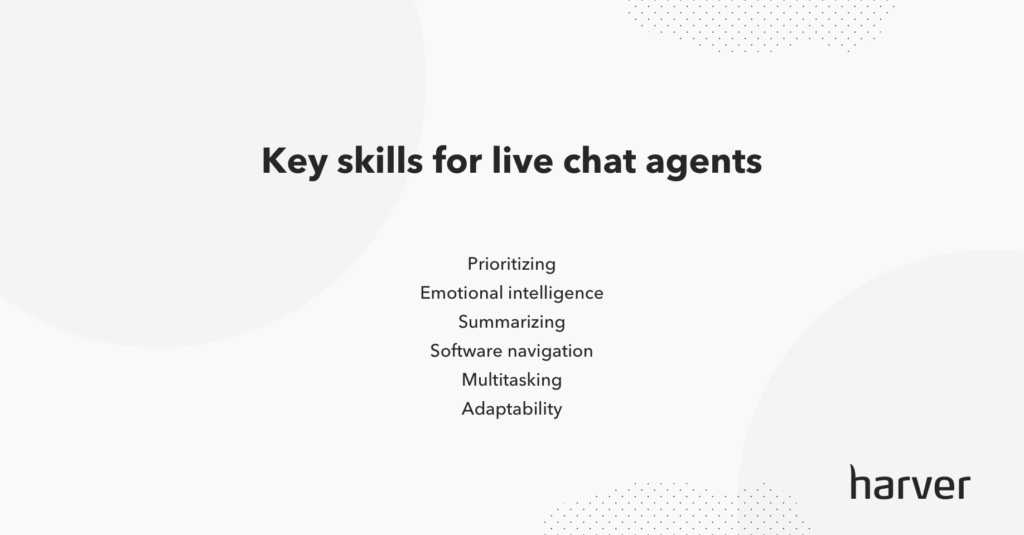In talent acquisition for contact centers and BPOs, the most important metric to track is always the quality of hire. Quality of hire is not just a recruitment metric, it’s an essential business metric, as it directly correlates to the return on investment for each new hire.
When you hire quality, you reduce your employee attrition rate and improve your employee engagement, company culture and overall employee productivity. With a poor quality hire, the consequences extend well beyond the financial cost incurred.
However, measuring the quality of hire is subjective and role dependent. Plus, if you don’t know what you’re measuring, it’s incredibly challenging. When you’re volume hiring, measuring the quality of hire becomes even more problematic. You can’t rely on intuition to improve this metric at scale.
So which qualities of good customer service are predictive of a quality customer service representative? What tools do you need to adopt a data-driven approach to improving the quality of hire for your call center? And how much do personality questionnaires predict contact center quality of hire?
Let’s find out.
What’s in?
Like what you see?
Don’t miss out. Subscribe to our quarterly digest to get the latest TA and TM resources delivered right to your inbox.
How we measure quality of hire in contact centers
You ordinarily measure quality of hire against the outcomes you want to achieve. Thus, when evaluating candidates for a BPO or contact center position, rather than defining quality as being able to produce these outcomes, you should recruit candidates who possess the skills that produce these outcomes.
When measuring quality of hire for contact center agents, here at Harver we look at:
- Job performance. This is one of the most popular ways to measure quality of hire because there are easy KPIs to track. For instance: number of tickets solved, average resolution time, calls per hour, customer satisfaction score, first contact resolution rate, quality assurance, etc. Of course, different call types will have slightly different KPIs to track.
- Turnover rates to measure retention/attrition. These are of particular importance in call centers because we want people to stay in the role as long as possible. Therefore, when we carry out our impact analysis for clients, we always look at what skills are lacking for the people who attrit too soon.
- Training time. There is often a fixed training period for someone to onboard in a call center role. In this time they need to learn all the procedures, how to communicate with customers, and the operating system. Within this training time, new agents are expected to get to grips with everything so they can hit the ground running. So when someone is selected and it takes them more time to be trained, you already know they’re lacking certain skills.
These are the areas we look at for measuring the output of a high quality hire. What this means for you is that a top performing agent will get up to speed faster, will have better attendance during onboarding and training, will meet their goals and kit their KPIs, and will stay with your company for longer.
Now, knowing what you want your top performers to achieve, how can you be sure you hire people who will become top performers? By identifying the input needed to produce these outcomes; in other words, the skills, traits, and characteristics needed to perform well.
How to predict a top BPO performer by customer service qualities
How can you predict a top performer in the BPO or contact center sector? In general, there are commonalities between call types. That is, the skills, traits, and qualities of a customer service representative that are indicative of quality call center agents. We assess applicants for these common skills and characteristics, initially, by measuring their “hygiene skills”.
For us, the three hygiene skills that top performers routinely possess are:
- Communication. Top performers possess outstanding communication skills. Agents need be able to understand the customer, be customer oriented, be able to listen to the customer – to take time to listen as well as anticipate what they hear.
- Language. If you need agents to communicate in a different language, this isn’t something they can learn during the training period. They need to be adept at the language prior to starting. And they need to be able to not just speak in the target language but write a summary of what was discussed with the customer too. When we measure language skills we also measure grammar, comprehension and spelling. If these aren’t sufficient, the candidate will get a poor fit overall match score.
- Computer skills. While the role itself is primarily communicating with customers, call agents need to have computer skills to navigate your system quickly and efficiently, while inputting data, looking up answers and giving the customer their full attention.
But call centers don’t just take incoming phone calls, they can handle different types of services as required by their clients. I.e. customer service, sales, and technical customer support, and these different call types all have slightly different requirements.
Depending on which service you need the call agent to provide will determine what key customer service characteristics your recruiters should look for in each candidate’s profile.

While the three skills listed above are indicative of a general top performer, the different call types and different clients will require agents to possess specific characteristics and traits as well. For example, cognitive skills are not the most important in service and sales roles. But cognitive ability is one of the best predictors for job performance for more complicated roles such as tech support.
If, on the other hand, you’re providing call center services for a health insurance provider, call agents need to have the cognitive ability to deal with people who are in financial trouble. Call agents in this case will need to be able to find out why a customer is struggling to pay. In addition to being a more complex interaction, this also requires tact, empathy, and understanding, while still delivering support at speed and with accuracy.
Hire better live chat agents, at scale.
Dive into the rise of live chat, the skills of top-performing agents, and how to best assess them to reduce attrition and guarantee top-notch customer service.

How personality questionnaires help predict quality of hire
Research repeatedly shows the link between personality factors and job performance. Because personality is a scientifically proven predictor of candidates’ tendencies in a work environment, it allows recruiters to understand whether applicants will be top performers in the call center, and whether they’ll fit with the culture of the company too.
At Harver, we assess personality because it highlights which personality facets someone possesses which might make them more or less suitable for sales versus tech support versus customer service. Our personality questionnaire will help you identify candidates who have the right disposition for the job and who are a fit with your organization.
We use our Personality Print personality questionnaire to measure the three dimensions of personality:
- Relating scales, or characteristics like agreeableness,
- Thinking scales, or characteristics like learning focus, and
- Working scales, or characteristics like resilience.
Harver’s adaptable personality questionnaire has been created by I/O (industrial-organizational) psychologists to measure specific behavior indicators which highlight desirable characteristics and traits in call center agents.
Our Personality Print questionnaire doesn’t try to fit candidates into a box. Rather, it shows on a sliding scale for each key trait where a candidate sits. It takes just 12 minutes to complete and gives candidates a fun experience, while you get validated, valuable insights into their personality.
Based on your hiring needs, you can decide how in depth you need to get to know applicants.
Are personality questionnaires enough to predict quality hires in contact centers?
Personality questionnaires highlight which candidates have a natural predilection for delivering outstanding customer service in a call center, and which call type a candidate might be better suited for.
Used early on in the screening process, personality questionnaires will improve your selection process allowing you to screen out candidates that are not a good fit at all, making it easier for your recruiters to focus solely on the most promising talent.
However, they aren’t enough to predict quality hires on their own. Companies still need to assess if applicants have the requisite skills to carry out the job well:
- Can they multitask?
- Problem solve?
- Demonstrate attention to detail?
- Communicate effectively
- Navigate software?
- Input customer information in a timely manner?
The call center role is more than simply answering a phone, it’s a multidimensional role that requires applicants to possess critical qualities to guarantee long term success on the job. Candidates need to have certain core work skills, habits, abilities and attitudes to thrive in the position. And these can’t be measured using personality questionnaires alone.
Identifying call center agents who will consistently perform well in the role, and remain there for a length of time, requires an assessment solution beyond simply personality-job fit.
We recommend our clients use personality questionnaires in conjunction with other skills tests such as: situational judgement tests (SJTs), cognitive ability tests, a typing assessment, a multitasking assessment, structured interviews, or alongside a virtual job tryout i.e. a live chat assessment simulation test, in order to get a full picture of each candidate’s profile.
Experience our best-in-class Live Chat Assessment first-hand!
Perfect for remote hiring, our live chat assessment makes it easier than ever to hire live chat agents. Candidates experience the job, while you get actionable data to drive hiring decisions.
Next steps
Using personality questionnaires in pre-employment testing helps identify potential candidates who may perform well in your call center job, but they don’t provide the whole picture. A personality assessment can be predictive of which call type candidates are better suited to. But they’re only one tool in a much wider tool set that you should be drawing on to identify and hire the top talent.
If a candidate doesn’t have the skills or abilities that enable them to succeed in the role, it doesn’t matter how much they want it, they will ultimately fail. But at the same time, someone who has the skills and abilities to succeed, but doesn’t have the personality that aligns with the role and your call center culture, will also fail in the role.
The key to predicting call center quality of hire is to use a multifaceted solution that assesses across skills, abilities and personality. And that’s precisely what Harver does. We identify top performers at scale with fully integrated, scientifically validated selection methods.
Our two-way matching technology accurately and consistently predicts on-the-job success, offering every candidate an equal opportunity, free from bias, delivering an outstanding experience to both candidates and companies.
To find out how Harver can help improve your call center quality of hire, book a demo below.
Ready to transform your hiring process?


